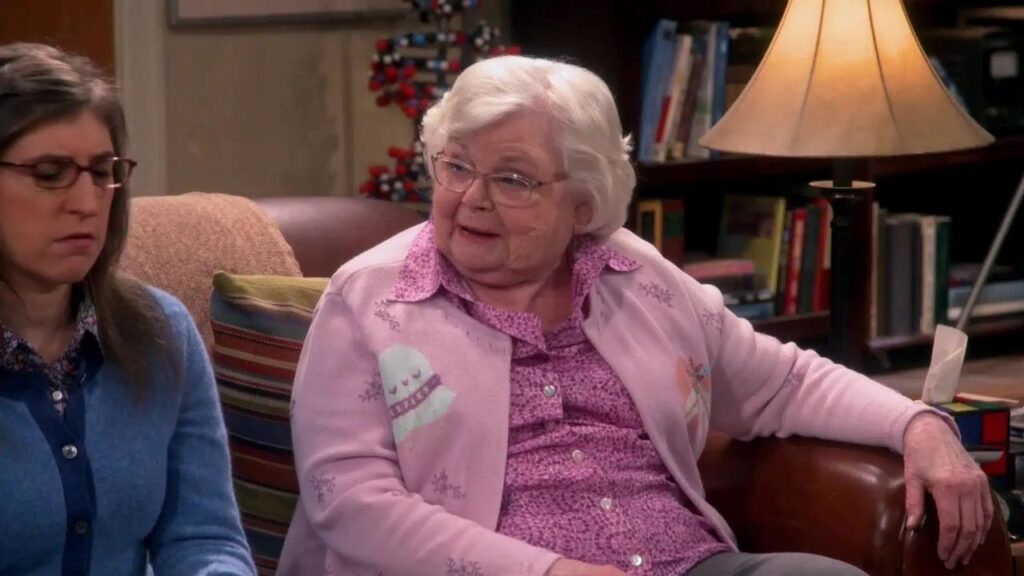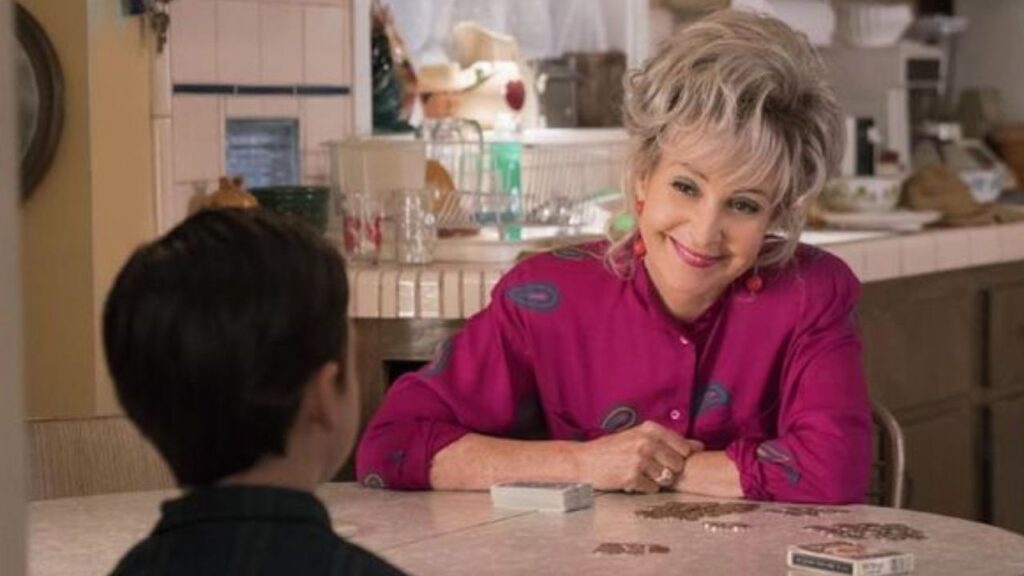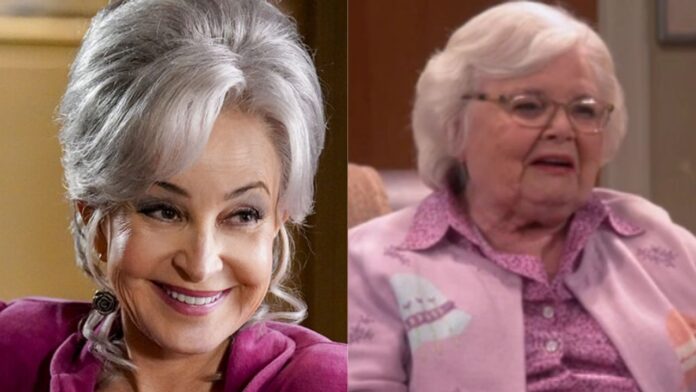If you’ve watched both ‘The Big Bang Theory‘ and its prequel, ‘Young Sheldon,’ you’ve probably noticed that Sheldon’s grandmother, Meemaw, doesn’t quite feel like the same person across the two shows.
In ‘The Big Bang Theory,’ she comes across as strict, tough, and not easily impressed. In ‘Young Sheldon,’ though, she’s lively, fun, and a little rebellious. So, what’s behind this change? We finally have a good reason for that.
Meemaw’s Character In ‘Young Sheldon’ vs. ‘The Big Bang Theory’

In ‘The Big Bang Theory,’ Meemaw only appeared once, in season 9, episode 14, “The Meemaw Materialization.” Played by June Squibb, she was portrayed as a stern grandmother who didn’t waste time on jokes or small talk. She was blunt, serious, and protective of Sheldon.
Related: ‘The Big Bang Theory’: Was Mary Cooper Really A Bad Mother? ‘Young Sheldon’ Explains Her Complex Arc
Circle back to ‘Young Sheldon,’ and we get a completely different version. Annie Potts took over the role and decided not to study Squibb’s performance. Instead, she built Meemaw from scratch, shaping her around the lighter, warmer, and more emotional tone of ‘Young Sheldon.’
At first glance, it felt like the two versions couldn’t possibly be the same person. But the spinoff had a plan. For six seasons, fans just accepted that ‘Young Sheldon’s Meemaw was different. But in season 7, the show finally gave us an explanation.
Meemaw’s arrest for running an illegal gambling room became the turning point. After a tornado destroyed her home, she found herself in even more trouble. At first, it seemed like this storyline would break her spirit. Fans thought she’d lose the playful spark that made Annie Potts’ version so lovable.
But then came Rhonda, a probation officer played by Octavia Spencer. Unlike everyone else in Meemaw’s life, Rhonda wasn’t charmed by her wit or smooth talking. She didn’t fall for the “innocent old lady” act and made it clear Meemaw had to face her sentence like anyone else. This was huge because it forced Meemaw to deal with something she had often avoided: consequences.
Up until this point, Meemaw had been portrayed as fun but also a bit selfish. She didn’t always think about how her actions impacted others. For example, she had no problem letting Sheldon do her community service, and she never considered how her gambling room could affect Georgie’s future.
Rhonda’s tough approach finally made her see that she couldn’t always rely on charm or quick fixes. Instead of breaking her, this challenge pushed Meemaw to grow. She began to reflect, take responsibility, and realise that some of her decisions had real costs.
Carefree To Mature: Meemaw’s Huge Transformation

This is where the puzzle pieces start to fit. The Meemaw we saw in ‘The Big Bang Theory‘ wasn’t just a “boring” older version of the character. She was someone who had lived through mistakes, been forced to change, and learned to carry herself differently. Rather than losing her fun side, she simply matured. She became calmer, wiser, and more serious. Definitely, a welcome addition to the quirky, geeky dynamic of the gang in the original show.
By tying her transformation to her arrest and her interactions with Rhonda, ‘Young Sheldon‘ gave viewers a clear explanation for why Meemaw feels so different across the two shows. It wasn’t a mistake or bad continuity; it was just growth.
In case you missed it: ‘The Big Bang Theory’: How Penny Broke Out Of The “Dumb Blonde” Cliché She Was Meant To Be
Now, when we look back at June Squibb’s serious version of Meemaw in ‘The Big Bang Theory,’ it makes sense. She isn’t a watered-down version of Annie Potts’ Meemaw; she’s the same woman after years of change.





